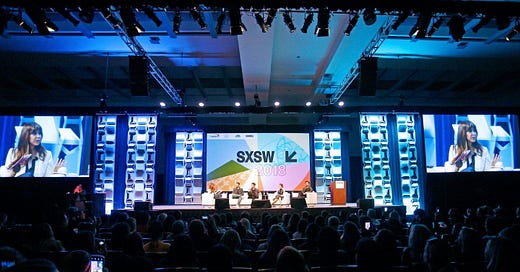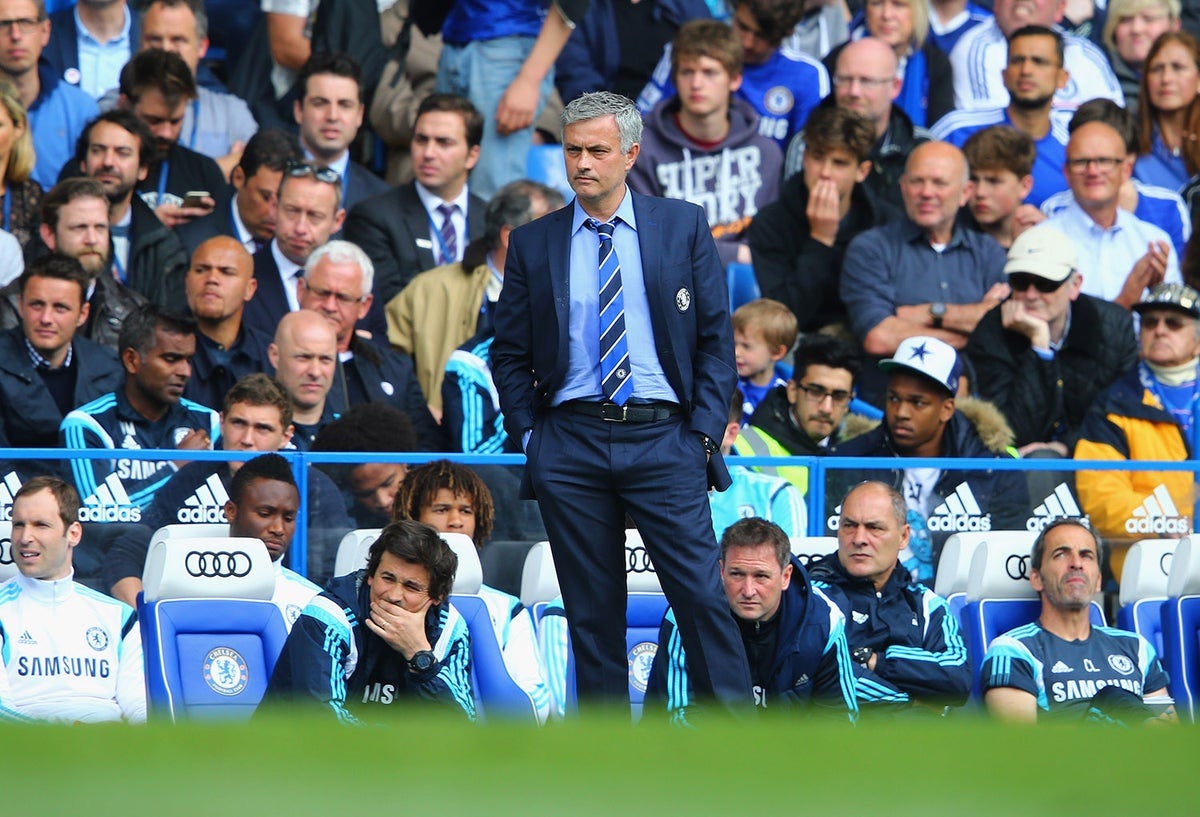The joy of the physical stage
I spent the week missing live events and only watching them on TV. It made think how hasty some people were to consign physical events to history during the pandemic.
I can't tell you how many free tickets I've been offered to MAD//Fest over the past few weeks. Have a ticket, have a +1, are you coming to MAD//Fest? While it's slightly worrying how many tickets they're giving away (when I worked at a small music promo agency, we only ever had spare tickets to the shit gigs), it's heartening to see physical events returning. The great prophecies of 2020 said physical events were over and wouldn't come back; this year's Cannes was a high water mark for bucking that trend. Adweek Europe felt similarly buzzy. (If anyone wants to sponsor me to attend SXSW next year, I'm all ears).
Looking back, you can see why the prophets of 2020 struck a chord. There's plenty that makes virtual event attendance superior to its physical counterpoint.
It's cheaper - no eyewatering flights to Austin or preposterous Airbnb costs.
No queues - before going to Adweek, I'd forgotten how much time you spend at multi-stage events queuing. None of that with virtual or on-demand festivals. The only limit is server capacity.
No danger of missing that one talk you wanted to go to as a result - although pro-SXSW tip: if you can't bear to miss a session, go to the session before in that room, then just don't leave.
No hangovers, awkward small talk, or struggling with poor connectivity - you can add your pet hate to the list.
So what is it about these physical meetups that make us ignore the costs and the queues and keep coming back for more?
Jarvis Cocker has an answer - he’s always been about the importance of the physical encounter. I had a VHS in my youth (which I now have on DVD) of a Pulp gig filmed at Brixton Academy, Xmas 1995. In it, Jarvis mentions the various video cameras and the filming of the show for "one of those programmes, you know, experience the magic of Pulp in your living room". He also says, "I don't know about you, but I think it's better to actually be somewhere, y'know?".
I love that video and still watch it regularly to this day, but it pales in comparison to the times I've seen Pulp live in person (I’m still sore that norovirus stopped me from seeing them this summer).
Boiling live events down to be just about the "content" ignores all the other facets that make experiences memorable. Watching a football match isn't just about the 90 minutes of action on the pitch - it's the sight of the ground looming up at you as you approach it from the street, the smells of the pitch and the burger vans, the chatter around you as you wait for kick-off.
Going to an advertising or technology conference is rarely in that league - most conference venues blend into one after a while - but using all your senses, not just your ears and eyes makes an experience memorable. That's why those live Pulp gigs or the Chelsea matches stick in the mind (although some of the Chelsea matches under Mourinho have blurred into one).
And in our world, memorability is the point. Going to industry events ourselves or putting on events and experiences as part of our campaigns, we're striving for memorability. We want to take something away, learn something, and build our network. We want our audiences to remember our key messages, for the journalists we managed to convince to come down to take away a hook that turns into some coverage.
The technology for virtual events has improved, and sometimes going virtual is necessary for unsurmountable logistical reasons. And, of course, virtual events, and sports we watch on TV, can be hugely memorable. I wasn't at the Cricket World Cup final or in the tent to watch Rick Astley sing Smiths songs with the Blossoms, but they both stick indelibly in the mind. But those are extreme highs - your virtual programming needs to be the comms equivalent of England winning "by the BAREST of margins" to stand a chance of sticking on your target audiences' radars.
But it's not just in the world of events that we're craving the comfort of increased physicality. In the excellent
newsletter, talks about the return of skeuomorphism in the worlds of design and technology. As Alexi says, "The aim of skeuomorphism is to make digital experiences familiar and relatable by mimicking traditional objects and materials". After a decade of technology design skewing decidedly minimalist, there's a desire to return to the analogue - to technology we can feel working in our hands.I'm into it - it took me an inordinately long time to use an iPhone for work. I preferred my old Blackberry (RIP), with its miniature physical keyboard. It just FELT easier to type on, even if that feeling was illusory (and everything else about using a Blackberry was drastically inferior). You can also see it in the world of guitar pedals (I'm quite into guitar pedals, as is Clive Thompson) - old analogue pedals continue to be a big deal, updated and improved, naturally, but still with the sounds and the feeling that people lack from menus, dials and touchscreens.
The feeling is what it comes down to, whether it's the technology we use daily or the events we're going to. Does it feel good, does taking part make you feel energised, excited and enthused - the best events go to provide that buzz. And it's a buzz that I associate most with being physically present. It's not exclusive to those physical events, and judging by the email I got from MAD//Fest yesterday, their buzz involved a chaotic queue, but it's the buzz and the feeling we're after. Get the buzz right, and your events will fly, whether physical or virtual.





